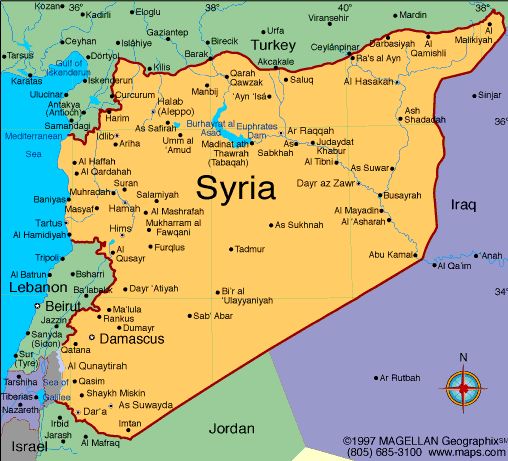Iran-Israel conflict
February 12, 2018 | Expert Insights

Tensions between Iran and Israel have escalated with Israeli Prime Minister Benjamin Netanyahu proclaiming that the nation would defend itself against “any attacks”. Over the weekend Israel carried out one of the largest airstrikes in Syria. In recent days, an Israeli jet was shot down while from a bombing raid on Iran-backed positions in Syria.
Could this open up another front line in war-torn Syria?
Background
After the Iranian revolution in 1979, Ayatollah Khomeini came into power. He did not like Israel’s friendly equation with the previous regime. He declared that Israel was an enemy to Islam.
The already tense relations further deteriorated during the 90s. The two nations started fighting in proxy wars against one another during the tenure of Mahmud Ahmedinijiad, the President of Iran from 2005 to 2013. In 2006, reports emerged that Iran had provided aid to Hezbollah fighters (a group that Israel considers a terrorist outfit) during the Lebanon War. The two regions are also locked in conflict Syria.
Israel is said to have carried out three specific airstrikes targeting Iranians during the Gaza conflict. The two nations have since blamed one another for terror attacks, assassination, cyberattacks and more.
In 2017, Mossad chief Yossi Cohen said, "As long as the current regime exists, with the nuclear agreement or without it, Iran will continue to serve as the main threat to Israel's security.” In 2017, Benjamin Netanyahu, the Prime Minister of Israel said that Iran is setting up sites in Syria and Lebanon to produce missiles. Netanyahu noted that Syria was being turned into a base of military entrenchment with the aim of attacking Israel.
Syrian war
The Syrian Civil War has been going on since 2011. It began during the Arab Spring protests and due to resentment towards the government of President Bashar al-Assad. The war is being fought by several factions: the Syrian government and its allies, a loose alliance of Sunni Arab rebel groups (including the Free Syrian Army), the majority-Kurdish Syrian Democratic Forces (SDF), Salafi jihadist groups (including al-Nusra Front) and the Islamic State of Iraq and the Levant (ISIL), with a number of countries in the region beyond being either directly involved, or rendering support to one or another faction.

Analysis
In February 2018, reports emerged that an Israeli jet that was returning from while from a bombing raid on Iran-backed positions in Syria was downed by an anti-aircraft fire. The aircraft, F-16, was one of eight planes that had been dispatched by Israel in response to an alleged incursion by an Iranian drone. Both pilots aboard the Israeli jet ejected, the Israeli army said. One pilot was severely injured during the ejection, while the second was lightly wounded. The incident was the first since 1982 when an Israeli jet was taken down by Syria.
Over the weekend Israel carried out one of the largest airstrikes in Syria. This is one of the most serious escalations in the conflict between Iran and Israel and likely opens yet another front line in the war-torn Syria. Israeli Prime Minister Benjamin Netanyahu has spoken out after the Israeli airstrikes noting, “We made it unequivocally clear to everyone that our rules of action have not changed one bit; we will continue to strike at every attempt to strike at us. This has been our policy and it will remain our policy."
Iran for its part has maintained that the drone that was intercepted did not belong to the nation. The state-run Syrian Arab News Agency reported that Syrian air defense forces said, “The Israeli enemy entity early morning at dawn conducted a new aggression against one of the military bases in the central region.” Similarly, Iranian Foreign Ministry Spokesman Bahram Qassemi also maintained the official stance by the government adding, “The Islamic Republic of Iran has advisory presence in Syria at the request of the country's legitimate and constitutional government. The government and army of Syria as an independent country have a legitimate right to defend (the country's) territorial integrity and counter any type of foreign aggression.”
Netanyahu has reportedly spoken about the development to Russian President Vladimir Putin as Russia remains an ally for both Iran and Israel. Netanyahu has in the past vowed he will not allow Iran to gain another military foothold right on Israel's border.
Assessment
Our assessment is that both Iran and Israel are standing at the edge of a larger conflict that could embroil most of Middle East. Neither nation seems intent on fighting an open war. However, even a small accident could trigger it during this tense period. The situation in Syria is further aggravated by the fact neither US nor Russia have taken a serious role to moderate peace talks in the region. We also have a fragile situation in Yemen and frayed tempers in Qatar. Will these heightened tensions contribute to the disquiet in the Persian Gulf?








Comments